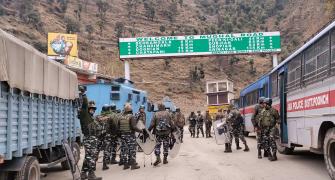Investors and real estate developers in and around the city of Kolkata have something to cheer about--if the restructuring programme currently being implemented by the government of West Bengal goes through, it would free up to 1,400 acres of land currently lying unutilised or underutilised at the state public sector enterprises (PSEs) being restructured. The legislative hurdle for this supply of land has been overcome.
Despite the collapse of the recent government Bill in the West Bengal Assembly proposing fundamental amendments and relaxation of the Land Ceiling Act in the state, one part of the Bill which freed land currently under PSEs was cleared by the Assembly.
Under its provisions, all land given to industrial enterprises before 1955 to set up factories, company townships or similar assets would come back to the government for reuse and even possible resale.
In other words, the bankrupt companies or their creditors would not be selling such land in piecemeal fashion.
Rather these plots, which are essentially large and possess developed infrastructure, have to be handed back to the government.
The government would use the proceeds from the reuse and sale of such land for the revival of the sick enterprises or to restructure their manpower under its programme of PSE restructuring with a human face.
"The related rules are yet to be frames for the procedure to go forward but there is consensus on the issue for progress", said Ardhendu Sen, secretary of the department of industrial reconstruction and public enterprises (DIR&PE) in the government of West Bengal, which is the single window department for the PSE restructuring initiative.
There are still some grey areas. For example, some units received land from both the state government as well as statutory bodies like the Kolkata Port Trust or Indian Railways.
In such cases, the land will have to freed through negotiations with the agency concerned.
The reverse is also true- such agencies have received land from the government which were no longer being utilised for the purpose cited when they were acquired by the state government and handed over.
The 1950s were the heydays of planning-led growth when the state government was very active in acquiring land and handing them over for large industrial enterprises.
The government also acquired huge swathes of land to set up public enterprises under the central or state government according to the Constitutional and legal provisions of that time.
So a similar process was used to say acquire land for Durgapur Steel Plant under central ownership, and also the West Bengal state-owned bus transport corporations.
Many of the the private units were subsequently nationalised when they fell sick after which they were kept alive through state subsidies till the current phase of PSE restructuring was taken up. This locked up prime real estate in a state which is currently facing an acute shortage of land for development of big ticket projects.
The problem has been caused by the existence of the Land Ceiling Act and related land reforms bills, the two pillars of success of the Left Front which smashed landholdings and ownerships to win over the voters in West Bengal in the 1970s.
The Buddhadeb Bhattacharjee government now wants to revoke these laws so that private companies could acquire large land holdings for new industrial enterprises and townships.
However, the relevant bills collapsed in the state Assembly owing to intense resistance from members of Bhattacharjee's own CPIM party and other constituents of the Left Front like the CPI, Forward Block, RSP, etc.
Existing laws were preventing the state from acquiring large plots of land or permitting private investors to do so.
The supply of developed land from the sick enterprises would therefore provide some relief to the state government which was sitting on a large number of applications from investors for land suitable for industrial ventures or even townships.







